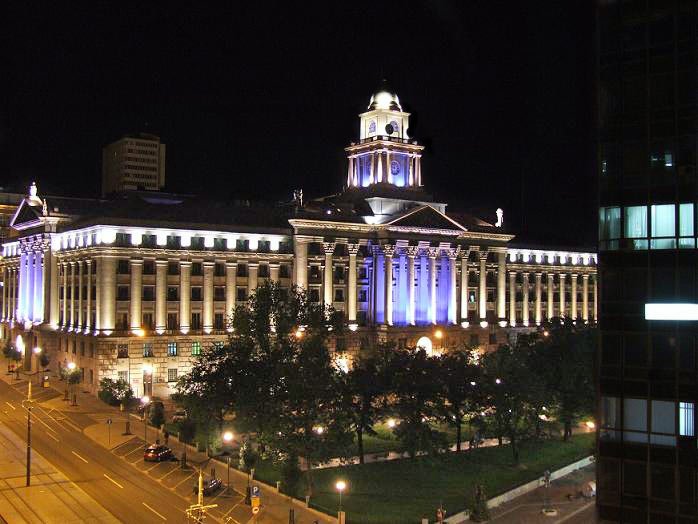
Expression
In October, Serbian authorities announced plans that could ban thousands of users from using Facebook if they are found posting homophobic abuse. In particular, users were warned that use of the homophobic slur 'faggot' would be penalised by having their accounts temporarily suspended. While the move has been welcomed by groups working on LGBTI issues, it has simultaneously reignited a debate over the delineation between freedom of expression and hate speech. The CIVICUS Monitor's local sources indicate that the authorities' plans are motivated more by politics than the protection of LGBTI rights. In particular, authorities aim to censor abuse directed at the Serbian Prime Minister, Aleksandar Vučić, against whom the same homophobic slur has recently been used. Many freedom of speech groups claim that the Serbian authorities' well established online community pushed through the plans in bid to prosecute Serbians who publicly criticise Vučić.
Regardless of the motive, the plans come at a time when many have drawn attention to rising intolerance and the increasing prevalence of attacks against the LGBTI community.
Being #LGBTI in #Serbia-70% of #LGBTI respondents had been exposed 2 psych. violence & harassment (15% higher than in 2014) #FreeEqualSR pic.twitter.com/XtsK0Pm2O8
— UN Serbia (@UNCT_Serbia) November 28, 2016
While legislative provisions to protect excluded communities do exist; many activists feel their existence is merely a smokescreen which superficially obscures a situation of widespread impunity for crimes against minorities. Boban Stojanovic and Adam Puskar, two leading voices from Serbia's LGBTI community who recently fled to Canada under threat of violence, drew attention to the situation, by noting:
'To be a gay activist in Serbia means being exposed to many different forms of hate speech and violence. Over the years I have unfortunately learned that one of the most important goals of the haters is to spread fear as they attempt to make us fragile'
In a separate incident on 2nd November, journalists from the Center for Investigative Reporting (CINS) claim they have been followed and photographed on several occasions by unknown individuals. The organisation says that these intimidatory tactics are indicative of a context in which journalists are threatened for reporting on politically sensitive issues. In a statement, the Director of the centre Branko Chechen vowed to continue unbowed and reiterated the organisation's commitment to independent investigative journalism. He stated:
'Intimidation or anything else that is directed to one, two or three people here will not stop us to investigating and publishing what is important for Serbian citizens.'
The harassment of journalists comes at a time when Serbian authorities have attempted to coerce journalists who expose government corruption. On 29th November, Aleksandrovac Gvozden Zdravic a correspondent from online portal 'Blic', was prohibited from entering the city assembly building in Aleksandrovac. Authorities claimed he had not applied to attend the session, despite the journalist claiming otherwise. Reports have subsequently emerged that Zdravic has been unable to attend a session for over three years. Many have questioned the quality of access to information in Serbia as well as the selective barring of critical journalists from public government sessions.
There is additional evidence that relations between journalists and Serbian authorities have become increasingly strained. In late November, a dozen prominent journalists left a conference in protest as Prime Minister Aleksandar Vucic took the podium. Their refusal to listen to the Serbian premier's speech indicates a worsening of relations between the government and independently critical media in Serbia. Their protest comes at a time when many feel that the conditions for investigative journalism are declining; in spite of rhetoric from the government claiming that they are committed to promoting and protecting the work of journalists.
Peaceful Assembly
Between October and December 2016, a variety of protests took place across Serbia, with no reports of unwarranted inference by Serbian security forces:
- Employees in the privatised Radio-Television Kragujevac (RTK) held warning strike claiming the station's owner owes them wages and has not respected the terms of sale;
- Over fifty civil society organisations from Serbia refused to participate in the National Assembly of the Committee for Culture and Information over fears that appointees to the Regulatory Body for Electronic Media (REM Council) were politically motivated;
- Civil society organiations and citizens in Serbia marked 16 Days of Activism against Gender-Based Violence with support from the authorities;
- Let's Not Drown Belgrade, the Serbian movement opposed to the controversial Belgrade Waterfront development, held another protest seeking official responsibility for the night-time demolition of sites presumably intended to make way for the development;
- Serbian soldiers threatened to protest over low wages prompting the Serbian Minster of Defense to call on army members to show solidarity in a ‘tough economic situation’;
- The NGO Women in Black on the occasion of the International Day of Human Rights Defenders warned of the alarming situation in which the organisation's activists have suffered continued abuses which are committed with impunity.